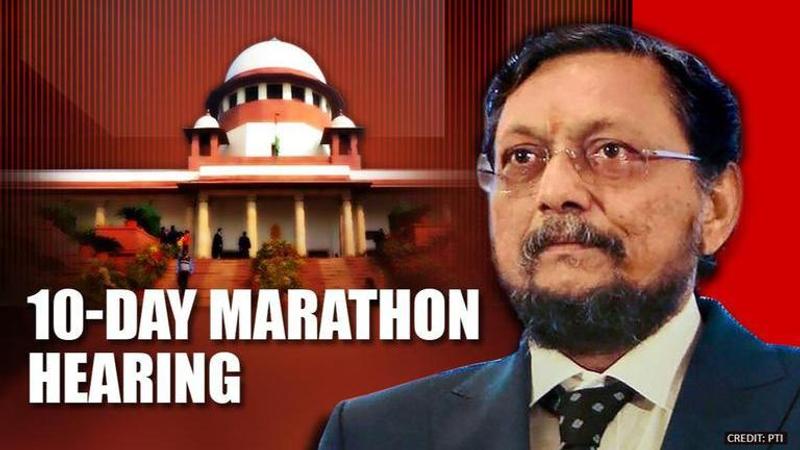Published 13:48 IST, January 28th 2020
MASSIVE: Right to Pray arguments to be completed within 10 days, orders CJI Bobde
Chief Justice of India Sharad Bobde said that SC will hold 10-days marathon hearing over the issue of Right to Pray, which is likely to start from February 3.

The Chief Justice of India Sharad Bobde has said that the Supreme Court will have a marathon 10-days hearing over the issue of Right to Pray which is likely to start from February 3. The Chief Justice of India has explicitly stated that the parties will have to complete their arguments within the ten days of the marathon hearing.
The Solicitor General Tushar Mehta has informed Supreme Court that the parties have not been able to narrow down the issues regarding the case. The Solicitor General has asked the Supreme Court to frame the issues in the case. The Supreme Court in its previous hearing on January 13 had directed all the concerned parties to come together and decide on the issues concerning the case.
9-judge bench to hear the case
The 'Right to pray' hearings which commenced in the Supreme Court on January 13 was adjourned to the first week of February to hear issues pertaining to discrimination against women in various religions and at religious places including Kerala's Sabarimala Temple. The Supreme Court on January 9 had set up a 9-judge constitution bench to hear the matter from January 13 on a daily basis.
On November 14, the Supreme Court had decided by a 3:2 verdict to review its 2018 Sabarimala order, referring it to a 7-judge SC bench. While delivering its verdict, the apex court clubbed the entry of women in mosques and the tower of silence, the legality of female genital mutilation in the Dawoodi Bohra community along with the Sabarimala issue. But there will not be a stay on the earlier judgment which allowed the entry of women between the age group of 10 to 50 years into Sabarimala temple.
What is the Sabarimala case?
On September 28, 2018, the SC lifted the ban on the entry of women belonging to all age groups in the Sabarimala temple. This sparked off huge protests across Kerala. The Travancore Devaswom Board (TDB) which manages the shrine, argued that the SC could not interfere with a century-old belief as the ban was based on the deity's celibate identity. While the Kerala government supported the verdict, it has not yet allowed women to enter the shrine.
Updated 13:48 IST, January 28th 2020




